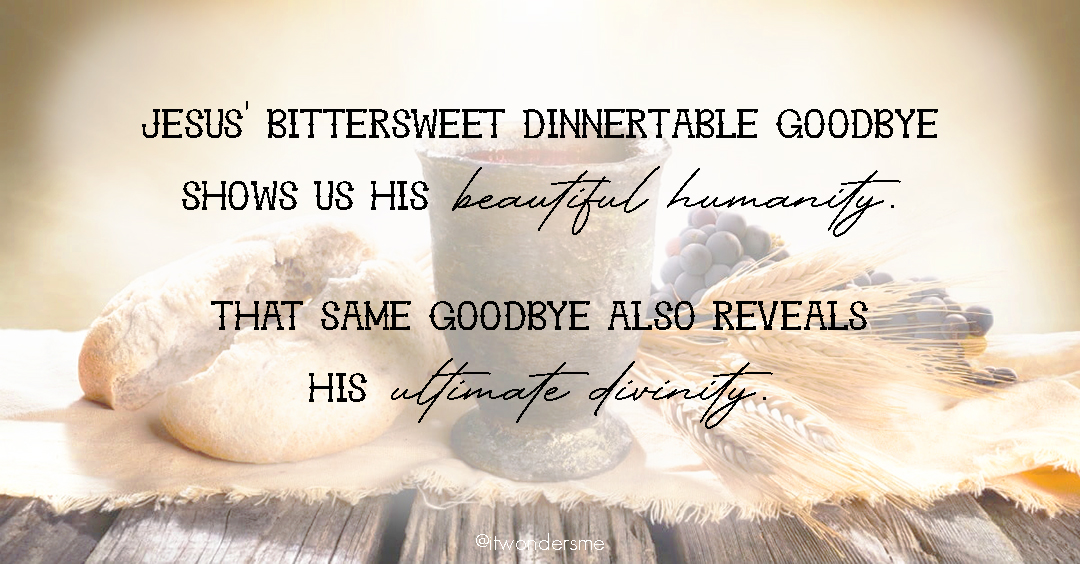Yesterday on our walk, my daughter casually mentioned she’d been praying the night before.
“That’s great, baby. What did you say?”
“I prayed that I don’t want to go to Heaven yet.”
Every parent just got the same icicle in their heart that I did. I asked why she thought she might go to Heaven soon, cursing myself for talking about coronavirus in her earshot, but only got circular toddler reasoning.
I let her run ahead, thinking my own thoughts.She gets so excited when we talk about Heaven. You should see her flap her arms and bounce in her seat when we talk about living on a new Earth and having new bodies.
But she also doesn’t want to go. Not yet.
It made me think of Jesus. How he must have longed to be with his Father in Heaven but also pleaded not to be taken from his human life. How the man in him must have wrestled with the God.
Even at the Last Supper, his double ache is evident. In Luke, he says: “I have eagerly desired to eat this Passover with you before I suffer. For I tell you, I will not eat it again until it finds fulfillment in the kingdom of God” (22:15-16).
Jesus loved doing life with his friends, eating and drinking and worshipping. He didn’t want to leave them.
But he also loved them enough that he did.
Despite the sadness Jesus must have felt at the Last Supper, the joy he saw on the other side of the cross was more than enough to steady his soul.
He knew that through his suffering and death, the Kingdom would be brought to Earth. That through his approaching sacrifice, a greater, sweeter, better life than any human ever imagined would become reality.
Jesus’ bittersweet dinner-table goodbye shows us his beautiful humanity, the part of him that understands our weakness because he lived with it, too.
And it’s that same goodbye that reveals his ultimate divinity, his true God nature, the part of him that loves us too much to let us die for our sin―so he did it for us.
